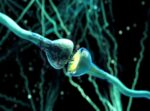Ketogenic Supplement Well-tolerated by Children in Small Trial
Written by |

A dietary supplement meant to mimic the effects of a ketogenic diet — known to reduce seizure frequency in patients with Angelman syndrome — was well-tolerated by children with the neurological disorder, according to data from a small clinical trial.
The trial met its primary goal of assessing the supplement’s tolerability, finding that the 13 children who completed the study “accepted and tolerated the powder formulation.” Indeed, according to the researchers, “half of the families chose to continue using the formula after the conclusion of the study.”
Given the small number of participants, the researchers were unable to determine the supplement’s efficacy. But the team wrote that “there was no indication that the [dietary supplement] was harmful to the patients and it may have provided benefit in some cases.”
These results were published in The Journal of Nutrition, in a study titled “Nutritional Formulation for Patients with Angelman Syndrome: A Randomized, Double-Blind, Placebo-Controlled Study of Exogenous Ketones.”
A ketogenic diet — one that is high in fat and low in carbohydrates — can reduce the frequency of seizures among Angelman patients. However, because people with the genetic disorder often have trouble communicating and difficulty with feeding and digestion, implementing a diet-based intervention in day-to-day life can be extremely challenging.
A possible approach to get around these obstacles is to use dietary supplements, rather than a completely altered diet, to mimic the biological effects of a ketogenic diet. Now, researchers in the U.S. conducted a small clinical trial (NCT03644693) to test such a dietary supplement in children with Angelman syndrome.
The dietary supplement used, called ketogenic medical food formulation or KF, is essentially a flavored powder containing a lot of ketones — the fat-derived molecules that the body uses to get energy when on a ketogenic diet. The supplement was provided by the company Disruptive Nutrition; several of the study’s authors are employees of the company.
The trial was conducted in four phases, each of which lasted four weeks, or about a month. The first phase, baseline, assessed patients prior to any intervention. In the second phase, participants were given either KF or a placebo, to be taken three times daily with meals. The third phase was a wash-out in which no treatments were given, designed to isolate the effects of the intervention being studied. Then, in the fourth phase, participants given KF in the second phase were instead given a placebo, and vice versa.
The study enrolled a total of 14 children with Angelman syndrome, ages 4 to 11. All but one of the children completed the study; one child refused to eat the nutritional supplement and was withdrawn from the trial.
Two adverse events were reported, which the researchers said may have been due to the consumption of KF. One patient was found to have elevated levels of triglycerides (a type of fat molecule in the blood) while on KF, while another had abnormally low levels of the liver-made protein albumin while on the placebo in the trial’s fourth phase, after having been given KF earlier.
Overall, the findings show that the powdered formulation of the KF supplement was generally safe and well-tolerated by these children.
“No negative effects were seen concerning cognition, seizure count, EEG [brain electrical activity], gait, mobility, sleep, GI [digestive] health, or developmental stage,” the researchers wrote.
Notably, almost all of the participants experienced a marked softening in stool consistency while on KF.
“Individuals consuming the KF had a consistent, gentle, and statistically significant improvement in constipation. … Families felt this was a considerable improvement,” the researchers wrote, noting that constipation can cause problems with seizures, behavior, and sleep.
Anecdotally, some families reported less food-seeking behavior when children were on the supplement, which was described as helpful for families who had difficulty controlling how much their children ate. As noted, half of the enrolled families elected to continue using KF after the study ended.
The researchers stressed that this small study did not have the statistical power to detect meaningful changes in the frequency of seizures or other efficacy-related outcomes.
“A larger and longer randomized placebo-controlled trial of exogenous ketones is needed, both to confirm safety and to determine efficacy, perhaps with a specific focus on AS patients with drug-resistant epilepsy,” the team concluded.







